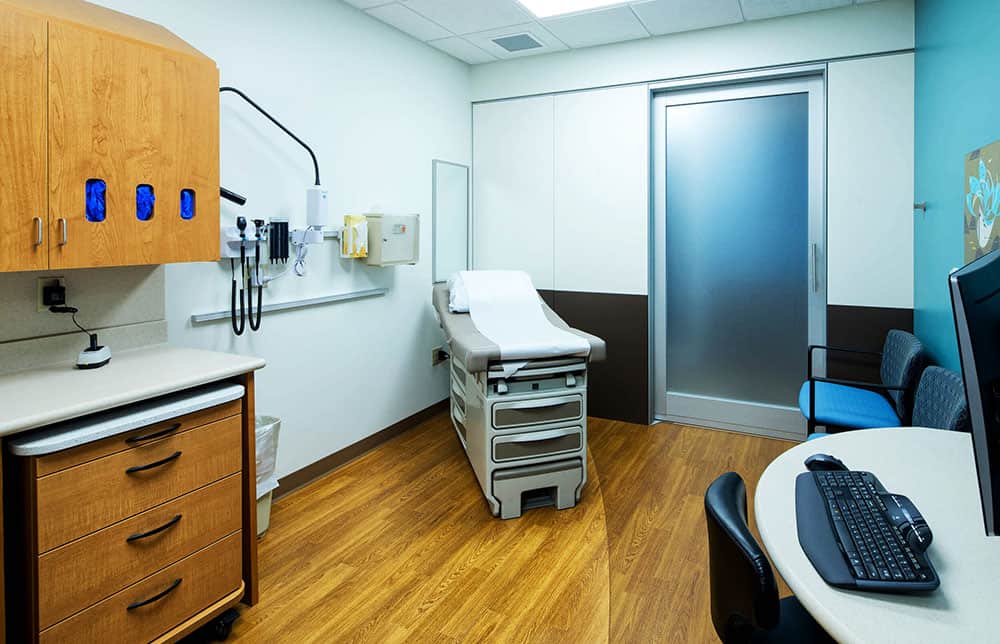Lack of mobility equipment preventing vital cervical screening for disabled women
New research has suggested a large proportion of women with a physical disability are struggling to access potentially-life saving cervical screenings due to a lack of mobility equipment at GP surgeries, according to Jo’s Cervical Cancer Trust.
Surveying 335 women living with a physical disability, the charity found that the opportunities available to disabled women were varied, with many reporting not having had a test for many years since becoming disabled.
The research revealed 88 percent of respondents said they feel it is harder for disabled women to attend cervical screening, with the availability of necessary mobility equipment being a key factor.
Jo’s Cervical Cancer Trust identified a lack of equipment in GP surgeries as being particularly problematic, with aids such as hoists or height-adjustable beds not readily available for those that require them.
According to the Trust, just 1 percent of respondents said that their GP surgery provides a hoist, yet 23 percent confirmed needing a hoist in order to get onto the examination bed.
The lack of equipment, amongst other concerns such as stigmas and lack of access to the GP premises, has resulted in almost half (49 percent) of the survey’s respondents purposely choosing not to attend a screening, citing previous bad experiences relating to their disability as the main deterrent.
In the UK, it is estimated that there are 18 million people with a disability or long-term health condition, with over half of disabled women having a mobility impairment.
Overall, over two thirds (63 percent) of respondents highlighted being unable to attend a cervical screening as a result of their disability, with many facing resistance and stigma along the way.
Alongside a lack of equipment, the charity reported inconsistency in the provision of home visits or referrals to alternative, accessible venues, with 22 percent of respondents saying they are unable to leave the house but only 3 percent expressing confidence that their GP surgery provides home visits.
One comment from a respondent said: “GP doesn’t have a mobile hoist. When I asked to be referred on to somewhere that does, he fobbed me off, saying that it wasn’t worth it as I’d probably never get this type of cancer. I wasn’t worth the extra effort I felt.”
Dr Hannah Barham-Brown, Disability and Gender Equity Advocate, GP Trainee, Speaker and Media Commentator, said: “This report represents a vital area of work that is all too often forgotten. The challenging practicalities of providing healthcare for disabled people mean that basic access to services such as cervical screening is sometimes being denied.
“We have an under-resourced and understaffed health service, however, clinicians must be funded and supported in order to provide the care that patients deserve.”
From the findings, the cancer charity expressed concerned that a lack of equipment, clear policies and, in parts of the country, substandard care is putting this group at an increased risk of cervical cancer.
Cervical screening prevents 75 percent of cervical cancers from developing, however, screening uptake in the UK is at a 21-year low says the charity.
In response, the charity is calling for GP practices to review their policies and practice, along with training and inspections to address adjustments for women with a wide range of physical disabilities. It is further calling for research looking at the most effective way of offering cervical screening to women with a physical disability, including the feasibility of HPV self-sampling.
Robert Music, Chief Executive of Jo’s Cervical Cancer Trust: “I am shocked by the inequality that exists in accessing cervical screening across the UK. It is not acceptable that women with a physical disability are often faced with additional hurdles or even being denied access to this potentially lifesaving test. It is worrying to see the level of stigma that exists regarding sex and disability and this must change.”



